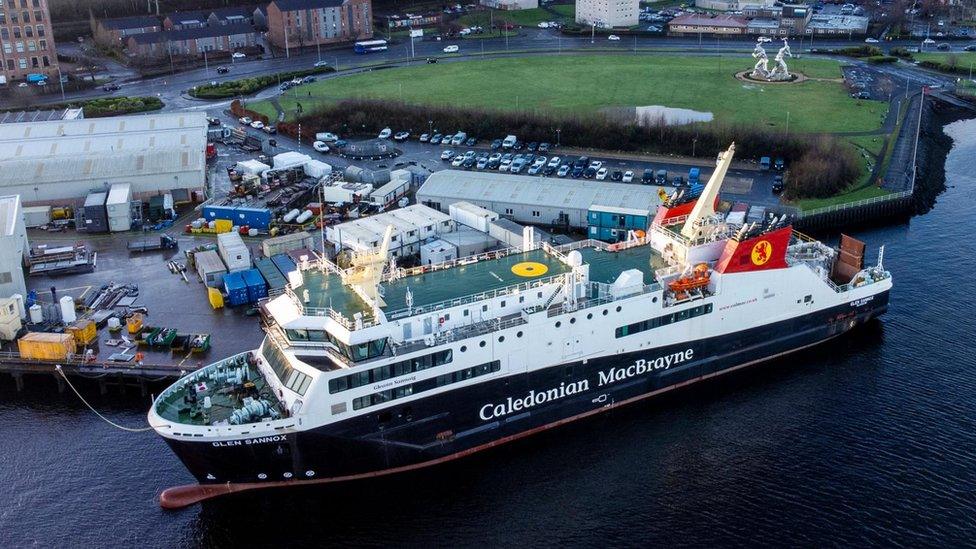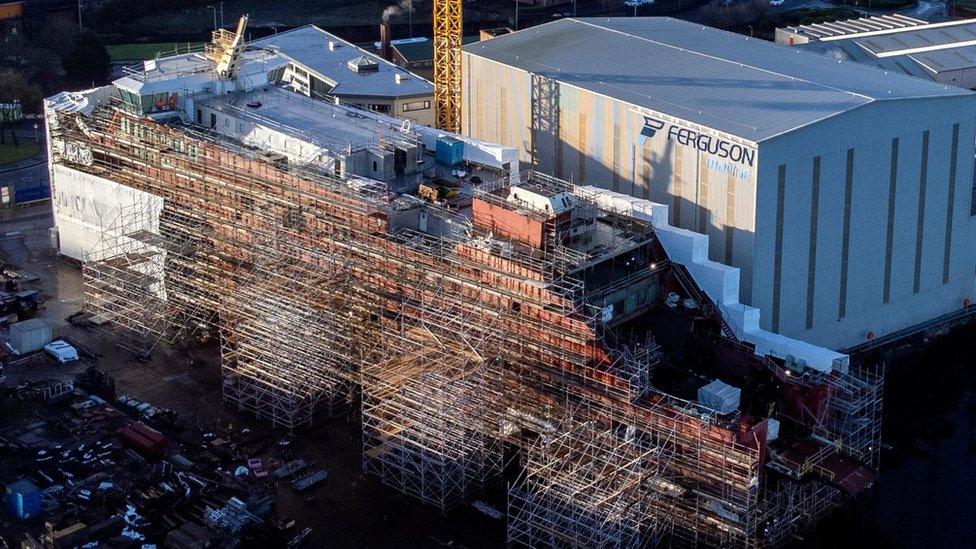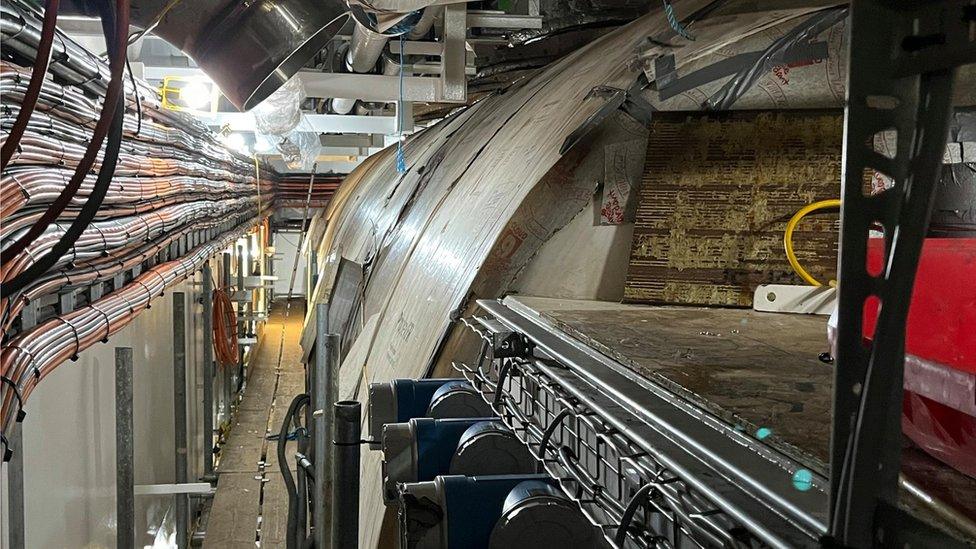Ferguson shipyard issues new ferry delay warning
- Published

Glen Sannox at the Ferguson Marine shipyard
The delivery date for a CalMac ferry being built at the Ferguson Marine shipyard is set to slip again as the yard faces new supplier problems.
Delays in obtaining specialist pipework mean the LNG gas system on the dual-fuel Glen Sannox cannot be fully commissioned until late May.
CalMac will then conduct weeks of sea trials before the ship enters service.
The yard has now put back the launch of a second ferry MV Glen Rosa by four weeks to focus on Glen Sannox.
Both ferries being built at Port Glasgow were originally due for delivery in 2018 but have been beset by repeated design and construction problems.
The ships, which can use both LNG (liquefied natural gas) and conventional marine diesel, are the first LNG-powered vessels ever built in the UK.
The gas fuel must be stored at temperatures between minus 160C and minus 170C and requires specialist "cryo steels" for the pipework.

The planned launch of a second ferry Glen Rosa has been put back by four weeks
In an update to MSPs, Ferguson Marine said this pipework should have been delivered last year, but was delayed and the yard had to engage an alternative UK company which arrived on site in January.
Installation should now be finished by mid-March but the Finnish engine supplier will then have to begin 10 weeks of commissioning and testing for the gas systems.
The yard had hoped to deliver Glen Sannox by the end of March but Ferguson Marine chief executive David Tydeman said that late May was now the planned date and warned of possible further delays and cost overruns.
"We are evaluating the risks to further slippage on the planned late May handover date for Glen Sannox, the cascade impacts onto Hull 802 and the overall costs to complete impacts for both ships," he wrote in an update to Holyrood's net zero, energy and transport committee, external.
Mr Tydeman said he would give MSPs a further update before they visit the shipyard on 23 February.
A second CalMac ferry being built at the yard, Glen Rosa, had been due to launch on 12 March but this had now been put back to 9 April so that Glen Sannox can remain at the shipyard's quayside for longer.

A huge LNG fuel tank inside Glen Sannox keeps the gas in liquid form at very low temperatures
When the contract for two new large CalMac ferries was awarded to Ferguson shipyard in 2015, they were hailed as "green ships".
The hybrid engines on Glen Sannox can switch between conventional marine diesel and LNG, helping to comply with pollution regulations and potentially cutting carbon emissions by up to 25%
But that figure does not include the carbon cost of getting the fuel to the ships. The LNG is expected to be imported from Qatar and driven by road tanker from Kent, leading some to claim they offer little or no benefit in terms of greenhouse emissions.
Ferries procurement agency CMAL, which will own Glen Sannox, wants the gas systems commissioned before it accepts delivery of the ship as agreed in the original contract.
Former Ferguson shipyard boss Jim McColl has claimed the choice of an LNG fuel system was one of the reasons the project went so badly wrong, adding unnecessary complexity to the design and extra regulatory hurdles.
CMAL denies that claim, insisting that LNG propulsion was already a well-developed technology when his company FMEL accepted the contract.
The increase in costs and delays led to a bitter dispute between CMAL and FMEL, which saw it fall back into administration in 2019. The shipyard was then nationalised, but delays have lengthened and costs have continued to spiral.
Four other new large ships for CalMac which use a mainly diesel propulsion system are currently under construction in Turkey with the first due for delivery in the autumn.